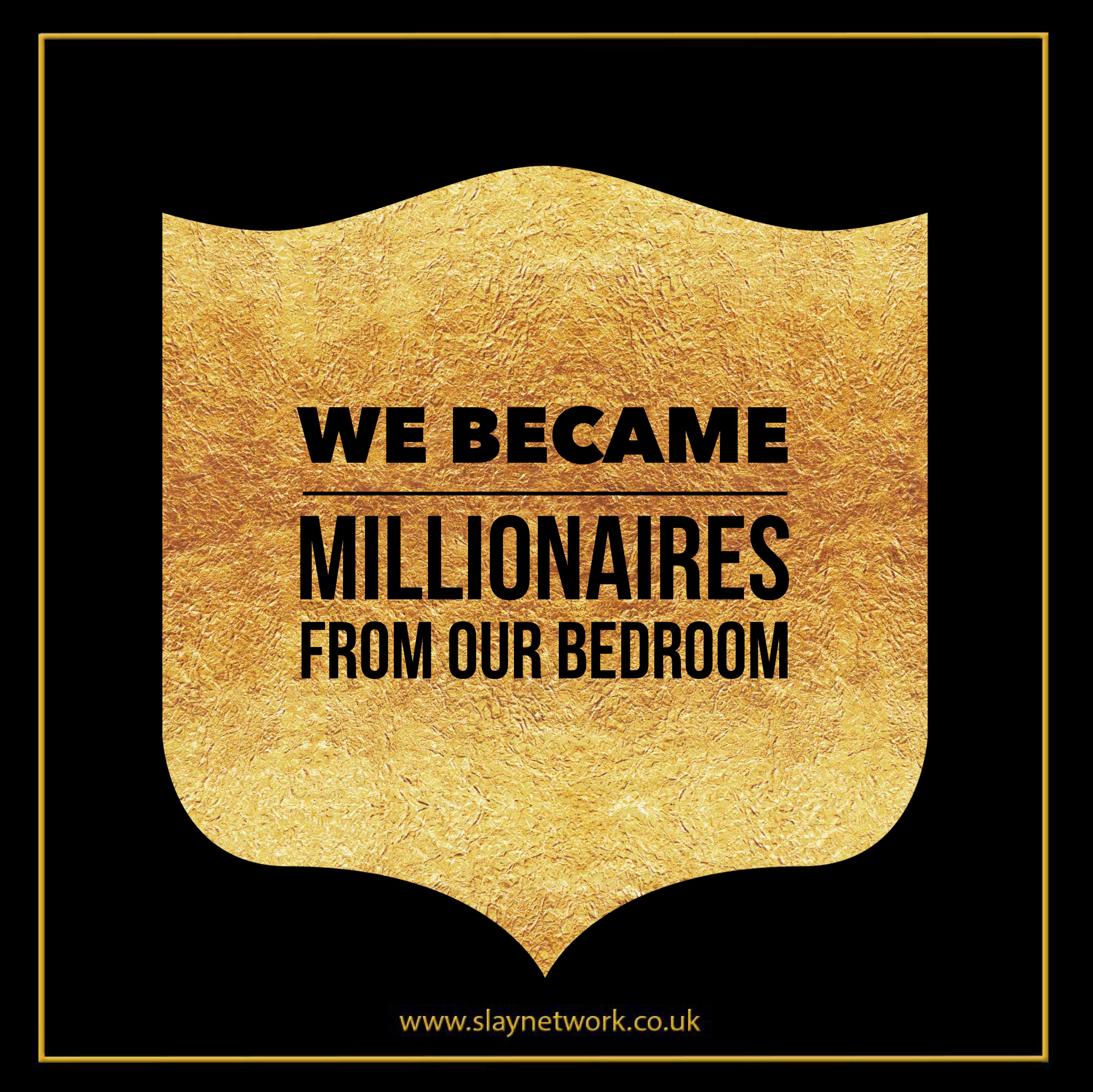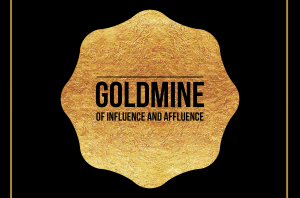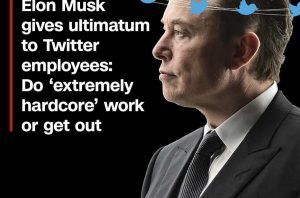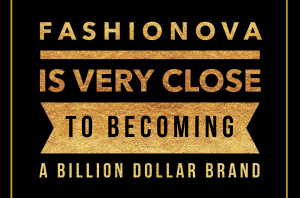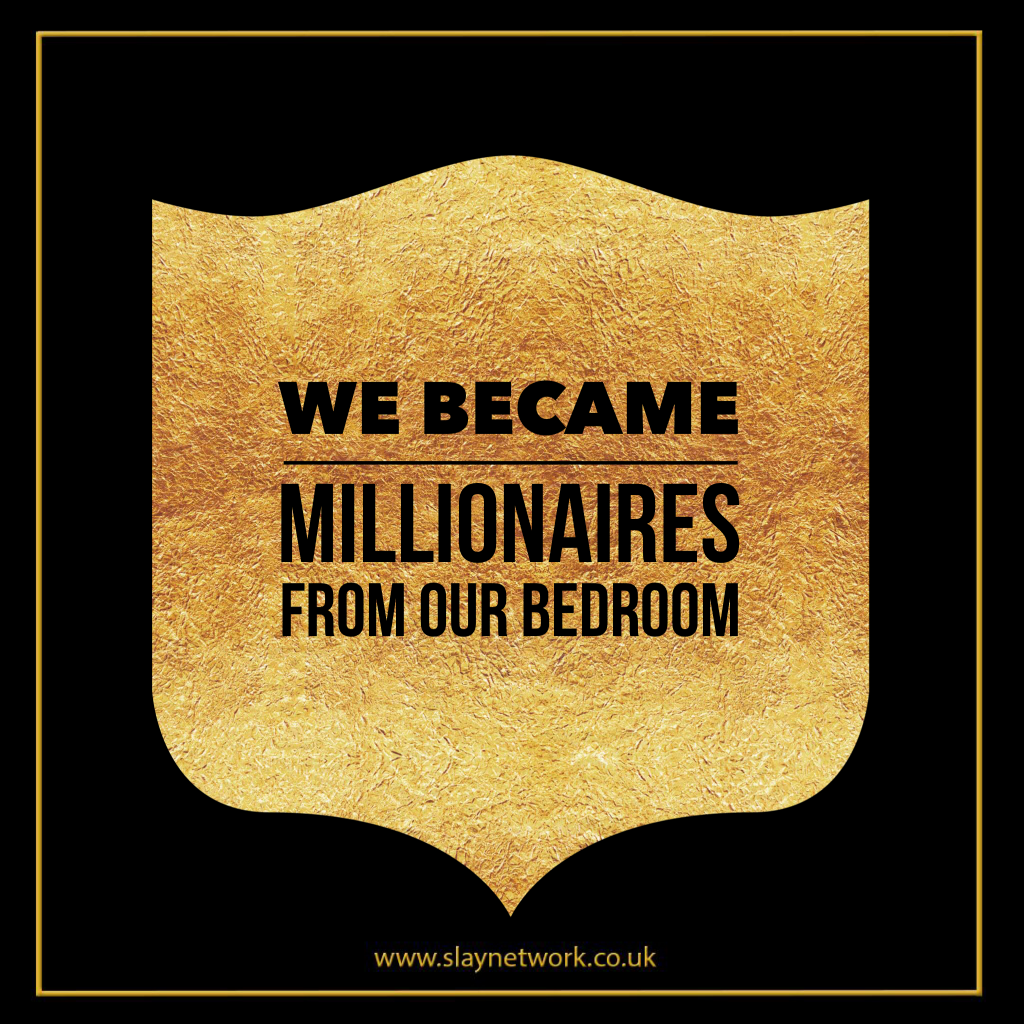
To paraphrase the TV quiz show title (and old Sinatra song – ask your gran): who wouldn’t want to be a millionaire?
Of course, money isn’t everything in life, but that doesn’t stop many of us from fantasising about hitting on that million pound idea that rescues us from the 9-5 routine and a life of overdraft dodging.
Much as we may dream about it, becoming a millionaire certainly doesn’t come easy, especially for young people – but for some it has proved possible. From blogging to Bitcoin trading, here’s how these four millennials achieved it – all from starting out in their bedrooms.
The cryptocurrency boss
Erica Stanford, 30, from Berkshire
“I’ve not always been good with money. In fact, I’ve found myself in debt in the past – but I’ve always loved learning new things. I think that’s where my interest in cryptocurrencies comes from. I first heard about Bitcoin – a digital encrypted currency, which means anyone in the world with an internet connection and a smart phone can send it anywhere in the world for free – on the radio in 2009, but only ever chatted about it with mates or my dad.
“But last year, I was getting bored of my sales and marketing job and looked into blockchain (which is like a worldwide database that crypto is built on) after my friend, John, started investing in Bitcoin. Once I read that you can use it to track the ethical background of diamonds, trace stolen antiques, and find out the history of second-hand cars, I was hooked. I found it fascinating that it had all these ‘real-world’ uses.
“I bought £200 worth of Bitcoin and some other new cryptocurrencies. I started playing around and buying the cheapest ones, investing about £2,000, which I stuck on credit cards. But within a few months I’d made £30,000, which I put into savings and used to pay off my debts. I remember thinking, ‘Wow this is actually proper money – I could quit my job and do this!’
“Which is exactly what I did. In September 2017, I handed in my notice to trade full time. A few people at work told me I was stupid, and I felt a bit scared on my last day, wondering if I’d actually be able to make a living out of crypto, which, let’s face it, is still pretty new. My boss kept my job open for when it ‘inevitably’ failed. That annoyed me a little, but also spurred me on be as successful as possible.
“I think Bitcoin had a bad reputation as being something people used to buy drugs and arms on the dark web, but, in my opinion, that’s like saying there’s something dodgy about using cash because people use that to buy illegal things, too.
On the day I made my first million I just felt panic
“That said, all my friends were concerned, and my dad gave me the, ‘You’re going to end up homeless’ lecture – especially as I had a mortgage to pay and credit card debts to pay off. And yes, I made mistakes early on. The most expensive one was when I’d been trading a small currency for a day and made £5,000, but then the currency put my wallet into ‘maintenance mode’, so it went offline and I couldn’t cash out. I lost the lot – it was awful, and I could hear the ‘I told you so’ words from my boss in my head.
“It’s very easy to lose money in crypto, and I didn’t realise that if a currency goes up very fast, it’s probably also going to rapidly go down a lot, too. I threw myself into more research to try and understand the market, find patterns, and work out the next big project to invest in.
“I’ll never forget when I first saw the numbers in my crypto wallet really start to climb. On the day I realised I’d made my first million, just a few months after quitting my job, I just felt panic. I didn’t know what to do – as in, whether to take the money and run, or invest it again. I decided to hold on to most of it, but it was like Monopoly money; it didn’t feel real. I’d seen how volatile the market could be, so I didn’t go out on a massive spending spree or tell many friends.
“I was determined to stay grounded and treat it like any other job. It might sound hard to believe, but so far my life hasn’t really changed, other than having a few more holidays. Don’t get me wrong, it does feel satisfying to pay for things like a Thailand holiday in Bitcoin.
“It can get lonely working from home. Most days, it’s just me and my cat. But I love that I’m my own boss, and, one year on since leaving my job, John and I have pooled our resources. Together we’ve made £20million. I’ve been asked to invest other people’s money – from friends to hedge funds – but I wouldn’t want that kind of stress or pressure. I’m happy to give advice though, and I’ve been asked to speak about crypto at events around the world. I love being known as ‘the crypto lady’.”
The online furniture kings
Monty George and Dan Beckles, both 21, from Wiltshire
Monty: “I’ve always been an entrepreneur. At 12 years old, I was buying cheap sushi-makers and laptop lights with my pocket money – and then selling them on eBay. At 15, I bought a load of dirt bikes from China to sell online, but then realised I didn’t actually know anything about mini motorbikes if they broke. Thinking about what else I could sell, I heard that furniture was one of the biggest growing markets online, so I ordered in a couple of shipping containers worth of tables and chairs – and they sold out straight away.
“I couldn’t believe my luck, so I reinvested the money into getting more stock. Towards the end of sixth form, I asked my mate Dan to come on board. Three years ago, the night before my A-level results, sales ticked over £1million. Fortunately, my parents have always supported my buying and selling ventures – and I think I’ve inherited their strong working ethic. But I have made errors along the way. In 2014, I got a huge tax bill because I hadn’t realised I had to pay VAT, so I had to sell some of my belongings to raise the cash. I felt foolish, but didn’t let it stop me.
“Launching the company when I was still living at home meant that I had no overheads, and my parents let me use their shed as a storage warehouse. Today, I’ve mainly put the profits back into the business and I live quite frugally. Dan and I have just moved into a houseshare in Bristol, but we’re too busy working to spend much money.
“Most days I’m up at 6am emailing suppliers in China, and the rest of the day varies from printing labels to talking to customers. Last year I treated myself to an expensive car, but I sold it after a year. It might sound weird, but I’d honestly rather have a simple one that gets me from A to B.
“I don’t have to play my wealth down to my friends because I don’t feel rich; I’m just working all the time. I’m proud of myself for making so much money at such a young age, though – it’s something you see in films. I like to think I’m proving wrong all those people who say millennials are lazy.”
Turning down uni was a big sacrifice, and we also work 365 days a year
Dan: “Sometimes I can’t believe that I’ve gone from barely any experience in the furniture market, to co-running a company that turned over £1.6million last year. Monty and I have been friends since we were 13. After sixth form, I planned to study economics management at university, but when he asked me if I wanted to take a year out and help him start Furniture Box, I couldn’t say no. I deferred my university place, but we ended up being so successful that I decided not to go to uni after all.
“We’ve picked up helpful advice from friends and family over the years, like not to just sit back and relax when things go well. We’ve taken on four employees, but we still have a hand in every aspect of the business. I think dealing with customers is the part we like best. Monty once went to help an elderly gentleman with Parkinson’s who was struggling to put one of our desk chairs together.
“We might be young millionaires, but we have made sacrifices. Turning down uni was a big one for me, but we also work 365 days a year. I only see my girlfriend once a month because we work every weekend. I remember on one New Year’s Eve, all our mates were out having fun, while we were in a warehouse taking down industrial storage racking in the freezing cold. We’ve worked so hard that our social lives have suffered, but we’re passionate about what we do. It’s an amazing feeling to be running a successful business with one of your best mates – I feel really lucky.”
The social media magnate
Laura Roeder, 34, from Brighton
“If someone told me one day I’d be a millionaire from social media, I’d think they were joking. I taught myself to code at 12 so I could build my own website. I was one of the first users of Facebook when it launched at my university, but I never imagined making a lot of money from it.
“In 2007, when I was 22, I quit my job as a graphic designer to go freelance. It was around the time Twitter and Facebook were taking off, and when I made websites for small businesses, I would also advise them on things like what their clients would want to see or show them to get more people to visit their websites. I just thought everyone building websites was doing this type of thing – but they weren’t, and more people started saying, ‘You could get paid for teaching this’.
“I’ve always loved public speaking, so I started making videos about social media marketing from my bedroom, and holding live webinars about using Facebook and Twitter to promote small businesses. I’d package them up as online courses and charged between £35 and £175. It was so exciting when I realised the idea meant that I could work less but make more money – and I was I earning six figures in my first year. It was mentally rewarding, too – like I’d hit on exactly what I should be doing with my life.
“But my parents and their friends didn’t really understand what I did. My mum would tell people I was an author after I also published an e-book about Twitter marketing. I laughed it off as I knew that the social media world was a relatively new industry.
“In 2013, I put the money I’d made from the courses – around £150,000 – into building the software for my company, Meet Edgar, which helps freelancers and small businesses automatically update their social media feeds. I started with a team of three, and now have 25 employees who all work remotely from their homes too, or from coffee shops. Although I hit £1million in revenue within a year of launching, it all went back into the business – it wasn’t like someone handed me a cheque for that amount. Last year we made £3.8million, and it was such an overwhelming feeling of pride.
“Starting a business from your bedroom does have downsides. I have to remember to leave the house and force myself to hang out with people. I’ve faced misogyny, too. Even recently, I’ve had people assume I don’t own the business because I’m a woman, or ask me if my husband or father is involved. Some people have been skeptical and said things like, ‘I don’t see why anyone would buy this software’. But seeing our success has been really confidence-boosting for me because I knew that I was onto a good thing.
“Sometimes when I’m on a safari holiday with Richard Branson, or enjoying the luxury of taking a long maternity leave with my baby daughter, I can’t believe I’ve achieved this lifestyle through social media. Best of all, I can’t believe that I’ve escaped the rat race – and am doing something I’m passionate about. Isn’t that the true definition of success?”
Click here to become a Slaylebrity Curator
By BBC

